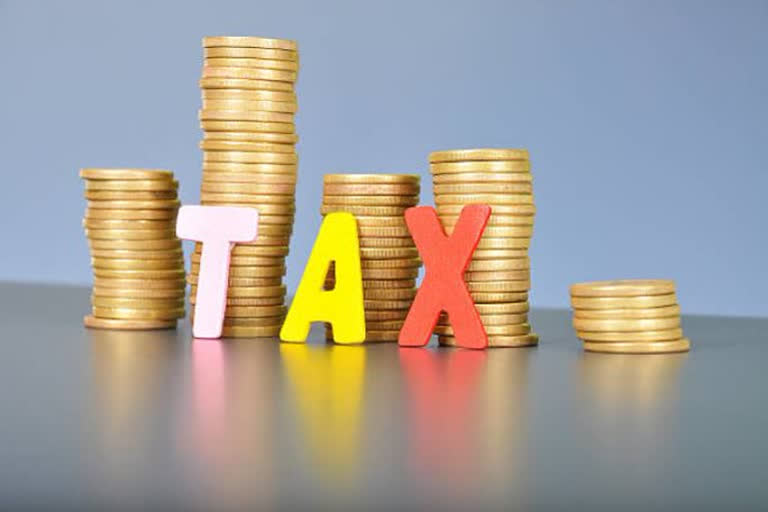New Delhi: The actual gross direct tax collection during 2019-20 fiscal dipped by 4.92 per cent to Rs 12.33 lakh crore on account on reduction in corporate tax rate, increased standard deduction and personal I-T exemption limit, the Income Tax Department said on Sunday.
However, the gross collections would have clocked a 8 per cent growth to Rs 14.01 lakh crore in 2019-20 if revenue foregone in corporate tax and Personal Income Tax (PIT) is taken into account.
The gross direct tax collection in 2018-19 fiscal stood at Rs 12,97,674 crore.
"It is a fact that the net direct tax collection for the FY 2019-20 was less than the net direct tax collection for the FY 2018-19. But this fall in the collection of direct taxes is on expected lines and is temporary in nature due to the historic tax reforms undertaken and much higher refunds issued during the FY 2019-20," the Central Board of Direct Taxes (CBDT) said in a statement.
The actual corporate tax and PIT revenue mop up stood at Rs 6.78 lakh crore and Rs 5.55 lakh crore, respectively, in 2019-20, taking the total actual direct tax collection to Rs 12,33,720.
During the fiscal, the revenue foregone due to reduction in corporate tax rate was Rs 1.45 lakh crore, while in PIT (due to increased tax rebate limit and standard deduction) it was Rs 23,200 crore.
If this had not happened, then corporate tax and PIT collection in 2019-20 would have been Rs 8.23 lakh crore and Rs 5.78 lakh crore, respectively.
Thus, the gross direct tax mop up would have been Rs 14.01 lakh crore, which would have been a 8.03 per cent growth over 2018-19, it said.
In 2019-20 fiscal, the nominal GDP growth rate was 7.20 per cent.
"By removing the effect of the extraordinary and historic tax reform measures and higher issuance of refunds during the FY 2019-20, the buoyancy of total gross direct tax collection comes to 1.12 and almost 1 for Corporate Tax and 1.32 for Personal Income Tax. These buoyancies indicate that the growth trajectories of both the arms of direct taxes, i.e., Corporate Tax and PIT are intact and are rising steadily.
"Further, the higher growth rate in direct taxes as compared to growth rate in the GDP even in these challenging times proves that recent efforts for the widening of the tax base undertaken by the government are yielding results," the CBDT said.
In FY 2019-20, refunds worth Rs 1.84 lakh crore were given by CBDT, a 14 per cent increase over Rs 1.61 lakh crore given in FY 2018-19.
Read more:Most urban Indians hopeful of jobs return post lockdown: Survey
The government had in September last year announced a concessional tax regime of 22 per cent for all existing domestic companies if they do not avail any specified exemption or incentive.
Further, such companies have also been exempted from payment of Minimum Alternate Tax (MAT).
For new domestic manufacturing companies, the tax rate was lowered to 15 per cent if such companies do not avail any specified exemption or incentive.
These companies have also been exempted from payment of Minimum Alternate Tax (MAT).
For companies which continue to avail exemption/deduction and pay tax under MAT, the rate of MAT has also been reduced from 18.5 per cent to 15 per cent.
Further, to provide complete relief from payment of income tax to individuals earning taxable income up to Rs 5 lakh, such taxpayers were exempted by providing 100 per cent tax rebate.
Also, to provide relief to the salaried taxpayers, the standard deduction limit was hiked from Rs 40,000 to Rs 50,000.
"The revenue impact of these reforms have been estimated at Rs. 1.45 lakh crore for Corporate Tax and at Rs 23,200 crore for the PIT," the CBDT said.
Debunking views in certain quarters that inspite of the tax reforms, the investment has not been picking up, the CBDT said that setting up of new manufacturing facilities requires various preliminary steps like acquisition of land, construction of factory sheds, setting up of offices and other infrastructures, among others.
"These activities cannot be completed in just a few months and the manufacturing plants cannot start manufacturing goods from the next day of the announcement of reforms.
"The tax reforms were announced in September, 2019 and the results are expected to be visible in the next few months and in years to come. The outbreak of COVID-19 may further delay this process but the growth in production due to these tax reforms is bound to happen and cannot be stopped," it said.
The government is committed to provide a hassle free direct tax environment with moderate tax rate and ease of compliance to the taxpayers, and also to stimulate growth by reforming the direct taxes system, the CBDT added.
(PTI Report)



